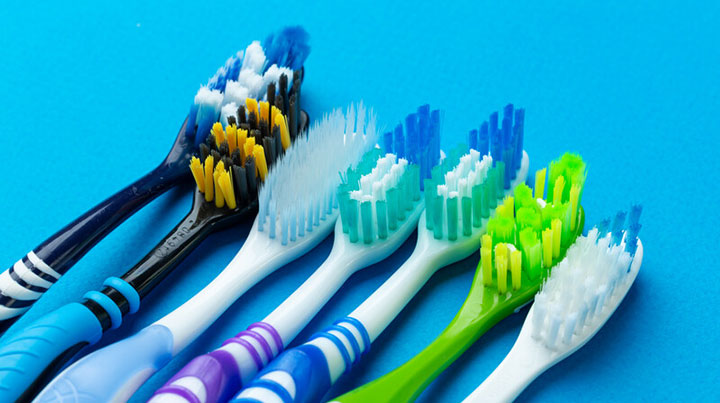Why do they make toothbrushes with hard bristles? The answer might surprise you!
Manual toothbrushes with hard bristles are usually marketed as helping you clear out tartar or deal with stains. The truth is, however, that no toothbrush can do either of those things. Once plaque hardens into tartar, it can only be removed by a dentist. And stains sink deep into tooth enamel; they’re not limited to the surface.
The real answer to “why do they make toothbrushes with hard bristles?” comes down to consumer preference.
Many people report that their teeth feel cleaner or they just “feel better” when they use a hard-bristled brush as opposed to a soft one. While anything that gets you brushing regularly is a good thing, it’s important to know that soft-bristled brushes offer all the same advantages and have none of the risks of hard bristles.
A Soft-Bristled Toothbrush Cleans Just as Well as a Hard-Bristled One
The misunderstanding comes from exactly what we are trying to do when we clean our teeth.
There is a misconception that to brush effectively, you need to “scrub” or “scour” your teeth the way you might wash your hair after a day of particularly dirty chores. But this isn’t actually the case. Gentle action is all that’s required to remove food particles from teeth, disrupt film, and massage the gums.
This last point is critical in the hard-bristled vs. soft-bristled debate.
When you brush your teeth (and to a lesser extent, when you floss) you are stimulating the gums in a way that promotes healthy blood flow. This blood circulation is essential to maintaining the elasticity of the gums and ensuring they support the teeth in all the ways they are meant to.
If you brush too hard, you risk doing permanent damage that erodes the gums.
Many people switch from a hard-bristled brush to a soft-bristled one after noticing some bleeding of the gums. If this describes you, it’s wise to see a dentist you trust as soon as you can. Bleeding of the gums may indicate gingivitis, gum disease, or damage caused by a harsh toothbrush.
Hard-bristled brushes are also worse for the elderly, whose gums may be more sensitive or fragile.
So, while it’s usual to switch to a soft-bristled brush with age, there’s no need to wait – you can and should adopt one right now.



